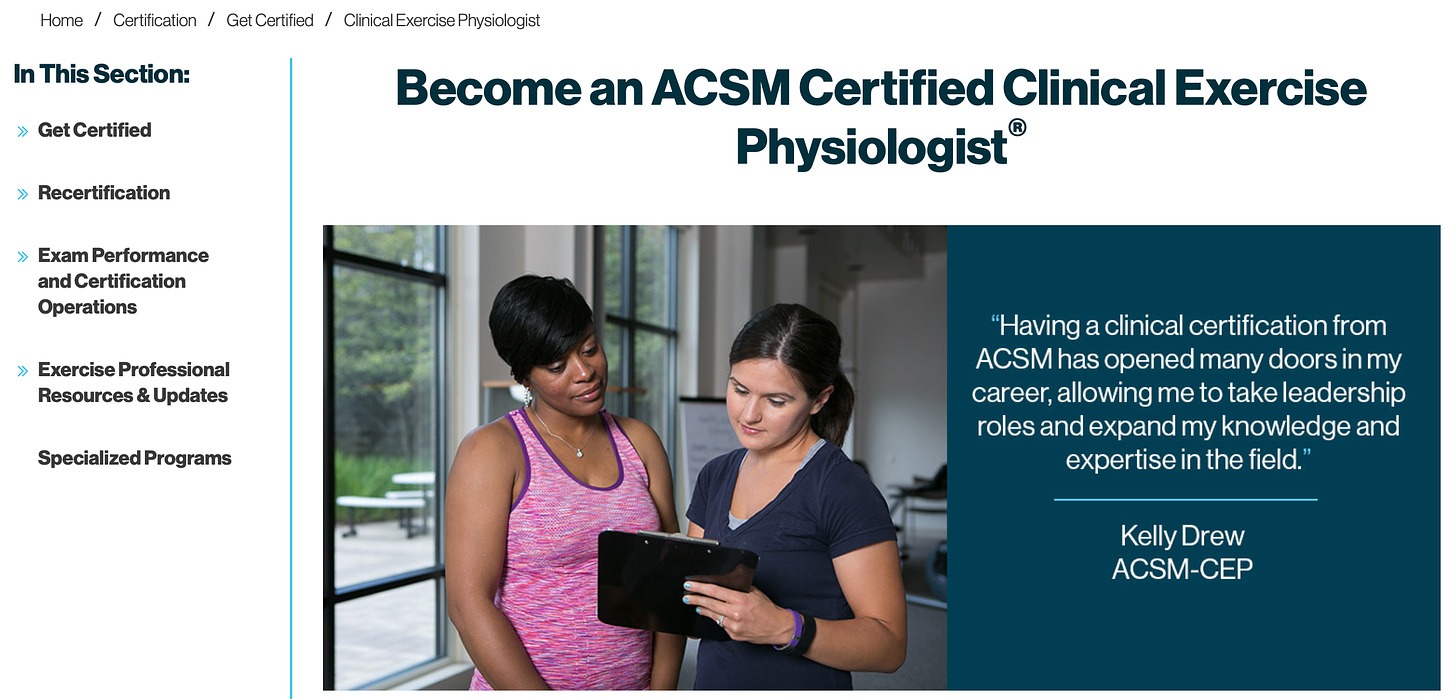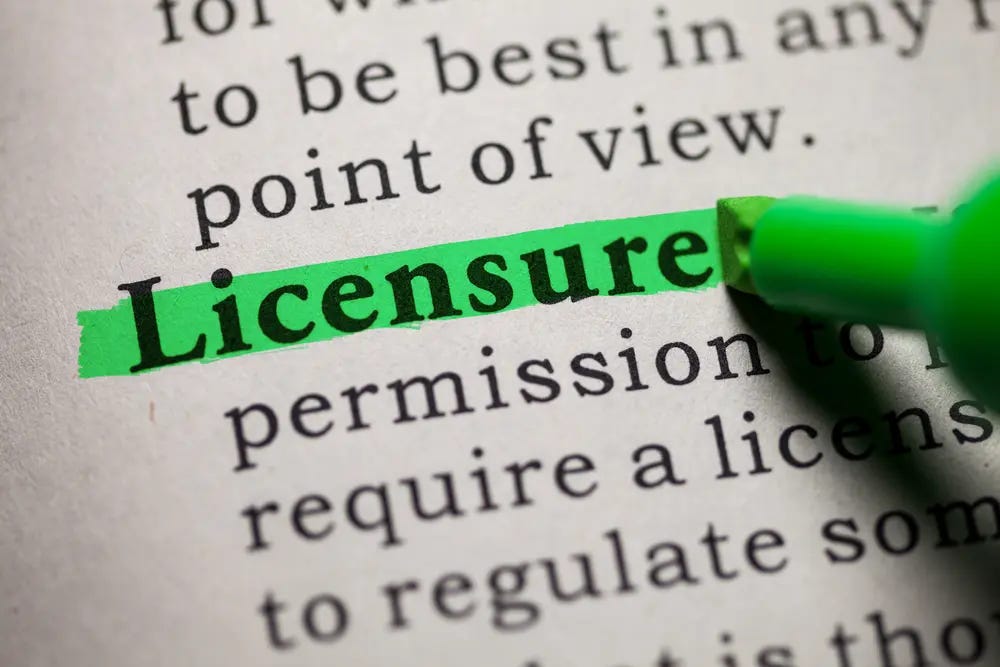
Triplett, Williams, McHenry, and Doscher (2009) stated that a lack of proper education can expose the employee to litigation, and the client to harm.In the following post, this author would like to explore factors, which affect the professionalism, efficaciousness, and credibility of the exercise profession. Ultimately, the aforementioned factors will be used as a platform for developing a rationale for licensure, including benefits for the exercise professional, and consumer.

Professionalism can be defined as the conduct, goals, or qualities that characterize a profession or a professional (Professionalism, 2014). Proper acquisition of knowledge would help individuals conduct themselves in a more meaningful and effective fashion. However, the exercise industry lacks higher academic requirements. Appropriate academic preparation would help provide the exercise professional with the skill sets and language to work with clients, and other allied health professionals. Medical doctors require a medical degree, and an engineer requires an engineering degree; exercise professionals require little to no formal academic training prior to engaging a client.

Certifications in the exercise industry such as the Personal Training Specialist through the Canadian Fitness Professionals (Canfitpro) requires no degree in exercise science (Canfitpro, 2014). Conversely, the American College of Sports Medicine (ACSM) has a certification known as the Certified Clinical Exercise Physiologist that requires a master’s degree in exercise science/exercise physiology/kinesiology, accompanied by 600 clinical hours or an undergrad in exercise science/exercise physiology/kinesiology and 1200 clinical hours (ACSM, 2022). Thus, a large dichotomy of minimal requirements exists between certifying bodies. Such a situation also creates inconsistencies and uncertainty in the perceptions of consumers, and other allied health professionals viewing the field. Ultimately, consumers are experiencing the ill effects of such shortcomings within the exercise professional field, and exercise professionals are suffering the consequences of heterogeneous standards between certifying bodies.

It is this author’s contention that licensure could help develop academic and professional homogeneity within the exercise industry. Licensure could galvanize the minimum academic, and continuing education, requirements for exercise professionals, in addition to creating a ubiquitous set of expectations, standards and guidelines to abide by. Licensure would help filter out individuals unmotivated/unable to comprehend the intricate nature and causes of human movement (i.e., motor learning, anatomy, exercise physiology, biomechanics etc.). Such requirements would demand a firm understanding of the science and principles behind human movement, exercise, and health, providing a higher degree of precision when manipulating variables responsible for enhancing the same.

Licensure would also protect the use, application, and advertising of the title “Fitness Professional” (Herbert 2009). Such a stipulation would, by default, demand that the exercise professional have a specific academic background and experience as part of the licensure, as mentioned in previous sections. Placing such standards within the framework of licensure, in addition to others, would not only produce higher caliber exercise professionals; a scrupulously developed licensure would also, and most importantly, protect the consumers who offer their time, money, trust, and well being to the exercise professional.
In conclusion, implementation of the licensure, and its contents, would help move the field in a favorable direction, not dissimilar from the stringent requirements found within other professions. Such steps would help facilitate the production of effective, highly trained professionals tasked with enhancing health and human performance. Ultimately, such rigorous licensure would protect the credibility and effectiveness of the exercise profession, and the well being of the client.
References
American College of Sports Medicine (2022). ACSM certified clinical exercise physiologist. Retrieved from http://certification.acsm.org/acsm-registered-clinical-exercise-physiologist
Canadian Fitness Professionals (2014). Personal training specialist certification. Retrieved from http://canfitpro.com/en/personal-training-specialist
Herbert, D. L. (2009). New Jersey proposal for fitness professional licensure moves ahead with amendments. Exercise Standards & Malpractice Reporter, 23(2), 23-28.
Professionalism (2014). Merriam-Webster. Retrieved from http://www.merriam-webster.com/dictionary/professionalism
Triplett, N. T., Williams, C., McHenry, P., & Doscher, M. (2009). Strength & conditioning professional standards and guidelines.
-Michael McIsaac
